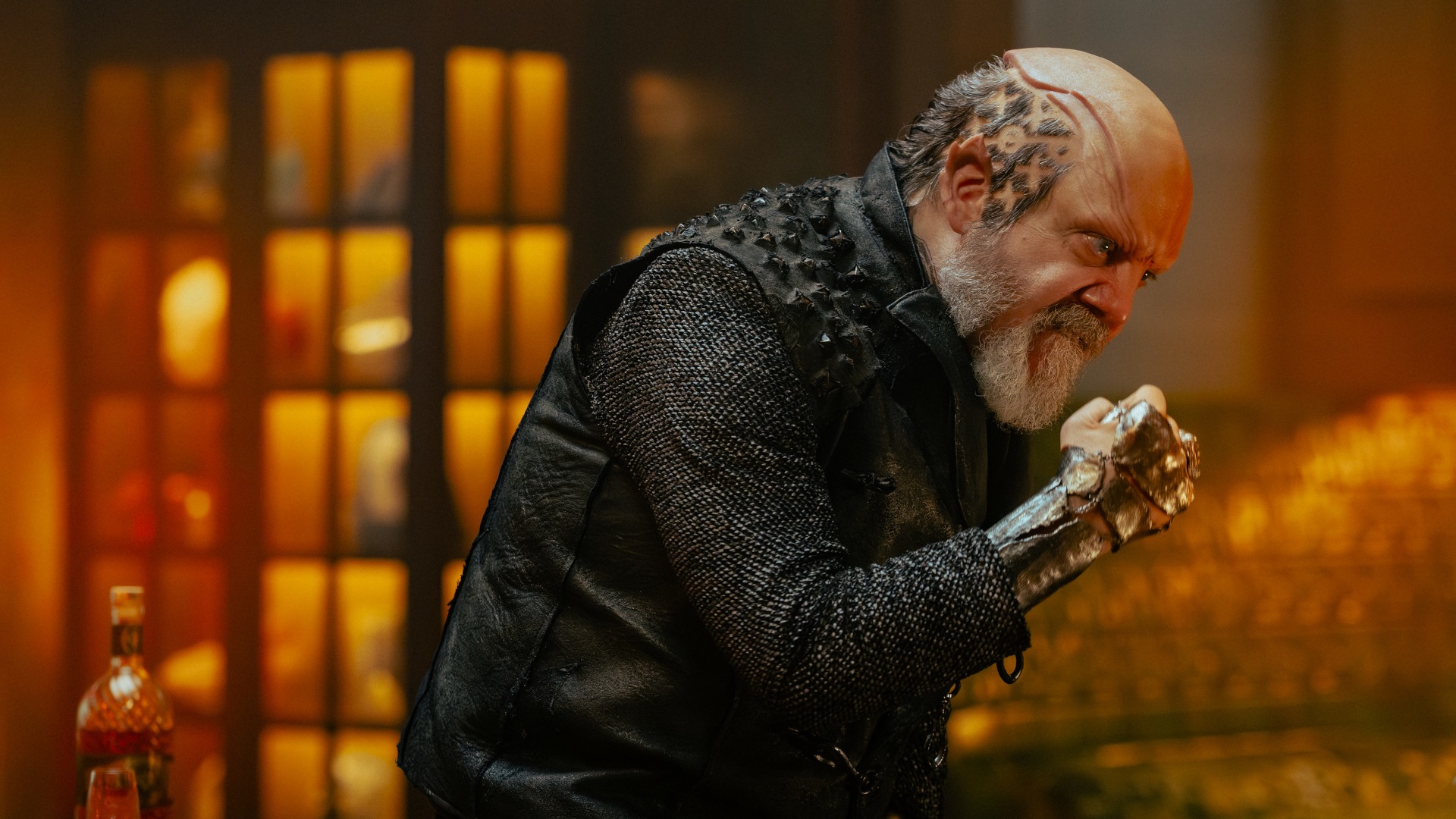SpaceX's Starship Super Heavy rocket prototype moves to launch pad for tests
The giant Starship and Super Heavy booster may shoot for an orbital test as soon as July.
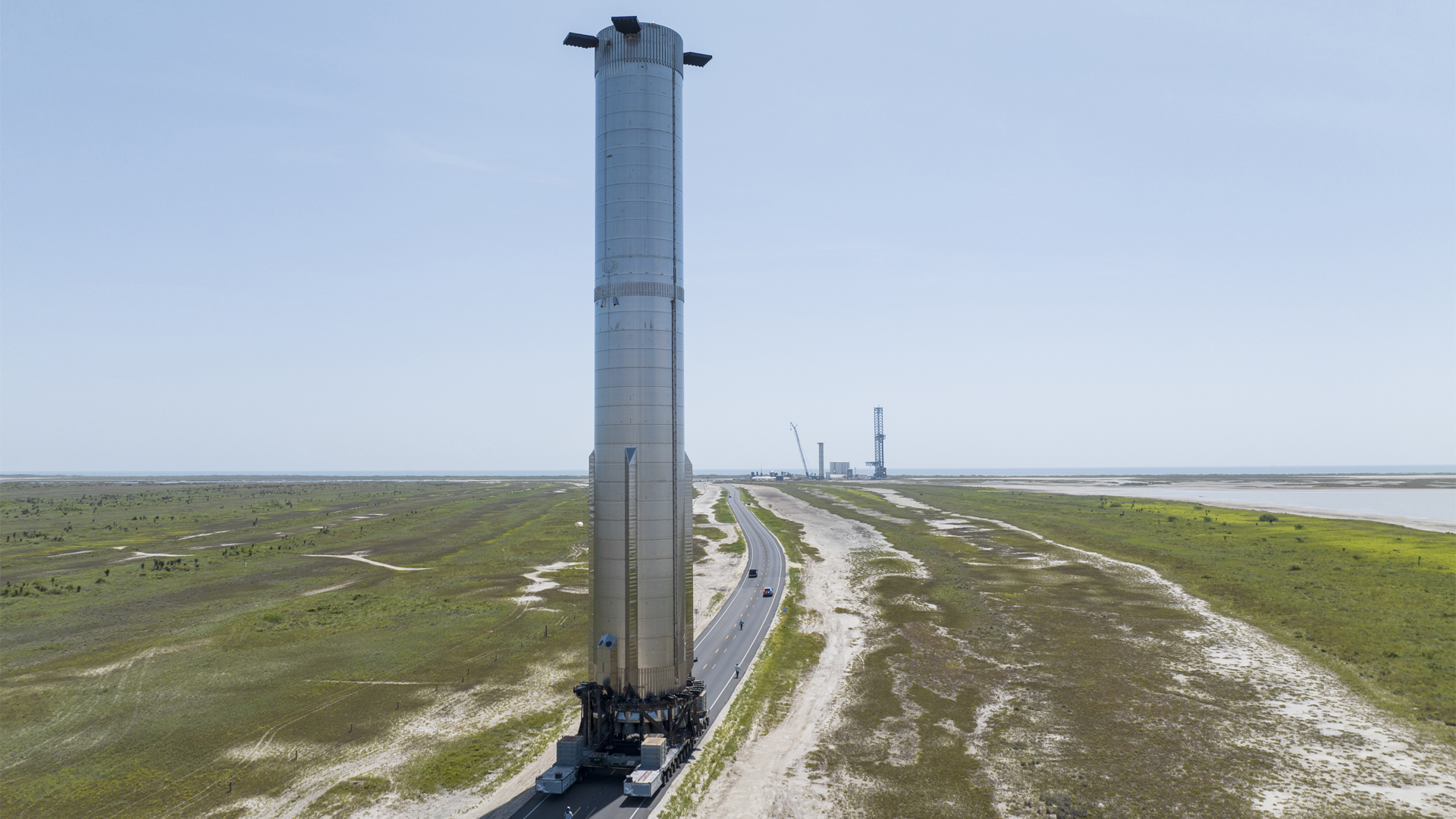
Breaking space news, the latest updates on rocket launches, skywatching events and more!
You are now subscribed
Your newsletter sign-up was successful
Want to add more newsletters?

Delivered daily
Daily Newsletter
Breaking space news, the latest updates on rocket launches, skywatching events and more!

Once a month
Watch This Space
Sign up to our monthly entertainment newsletter to keep up with all our coverage of the latest sci-fi and space movies, tv shows, games and books.

Once a week
Night Sky This Week
Discover this week's must-see night sky events, moon phases, and stunning astrophotos. Sign up for our skywatching newsletter and explore the universe with us!

Twice a month
Strange New Words
Space.com's Sci-Fi Reader's Club. Read a sci-fi short story every month and join a virtual community of fellow science fiction fans!
SpaceX's massive Starship project was on the move last week, as its "Booster 7" Super Heavy rocket prototype moved to its South Texas test pad Thursday (June 23).
The Starship rocket and its Super Heavy is set for pressure testing and perhaps, a static fire test at its facility near Boca Chica that would assess its abilities to burn fuel consistently over a period of time, according to Ars Technica.
If it survives, "by no means a guarantee given the developmental nature of the Raptor 2 engine," this booster could bring Starship on an orbital test flight in July, the report added Friday (June 24).
Photos: SpaceX lifts huge Super Heavy rocket onto launch stand
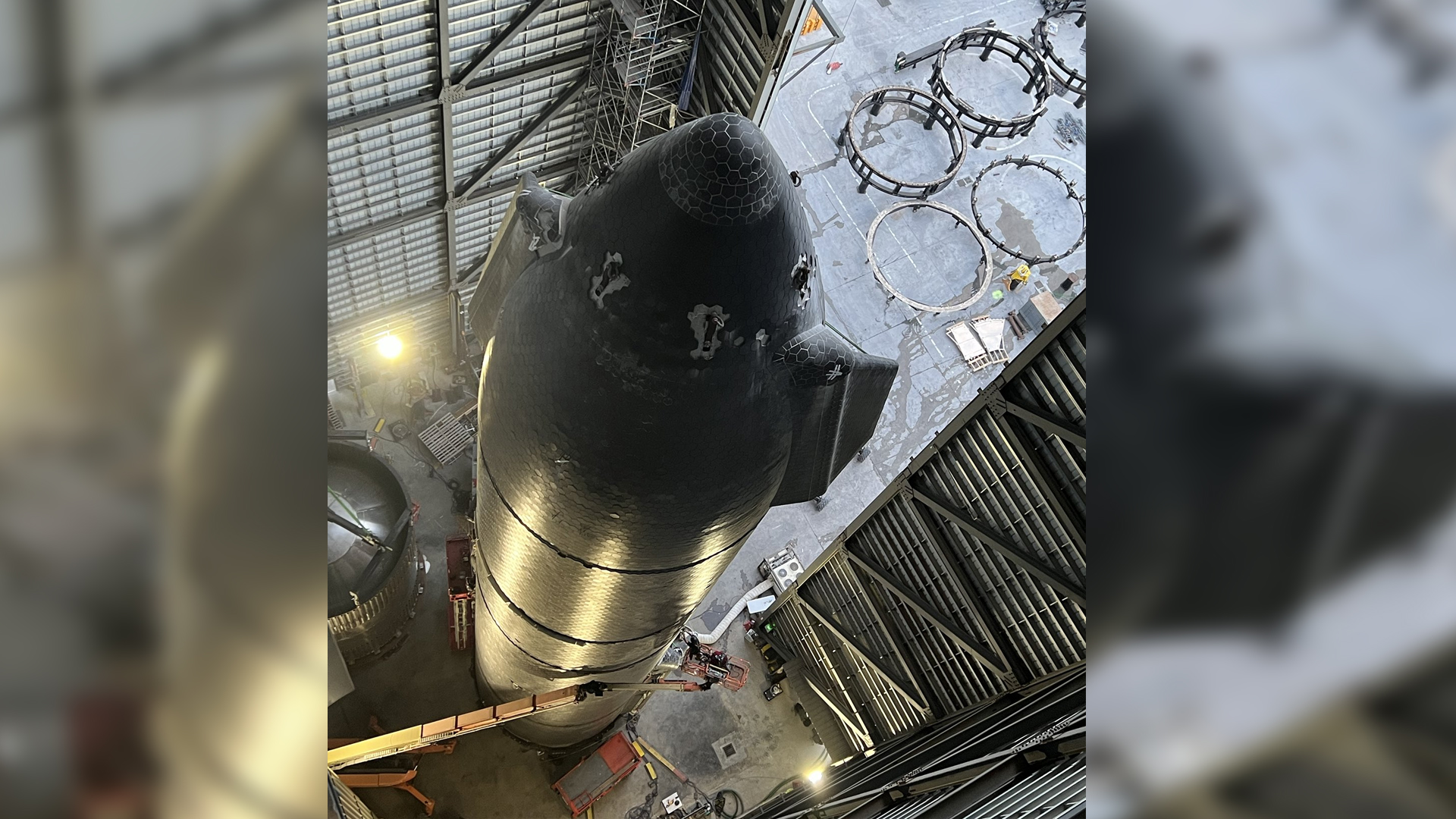
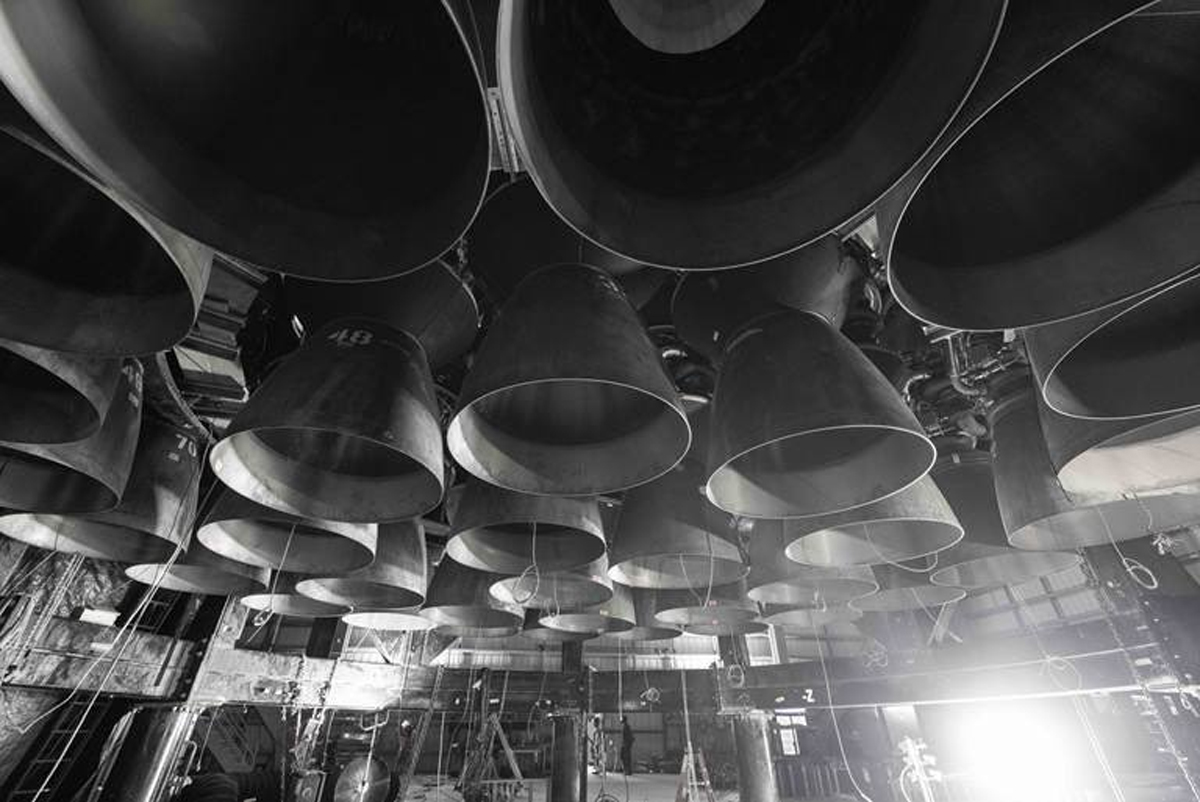
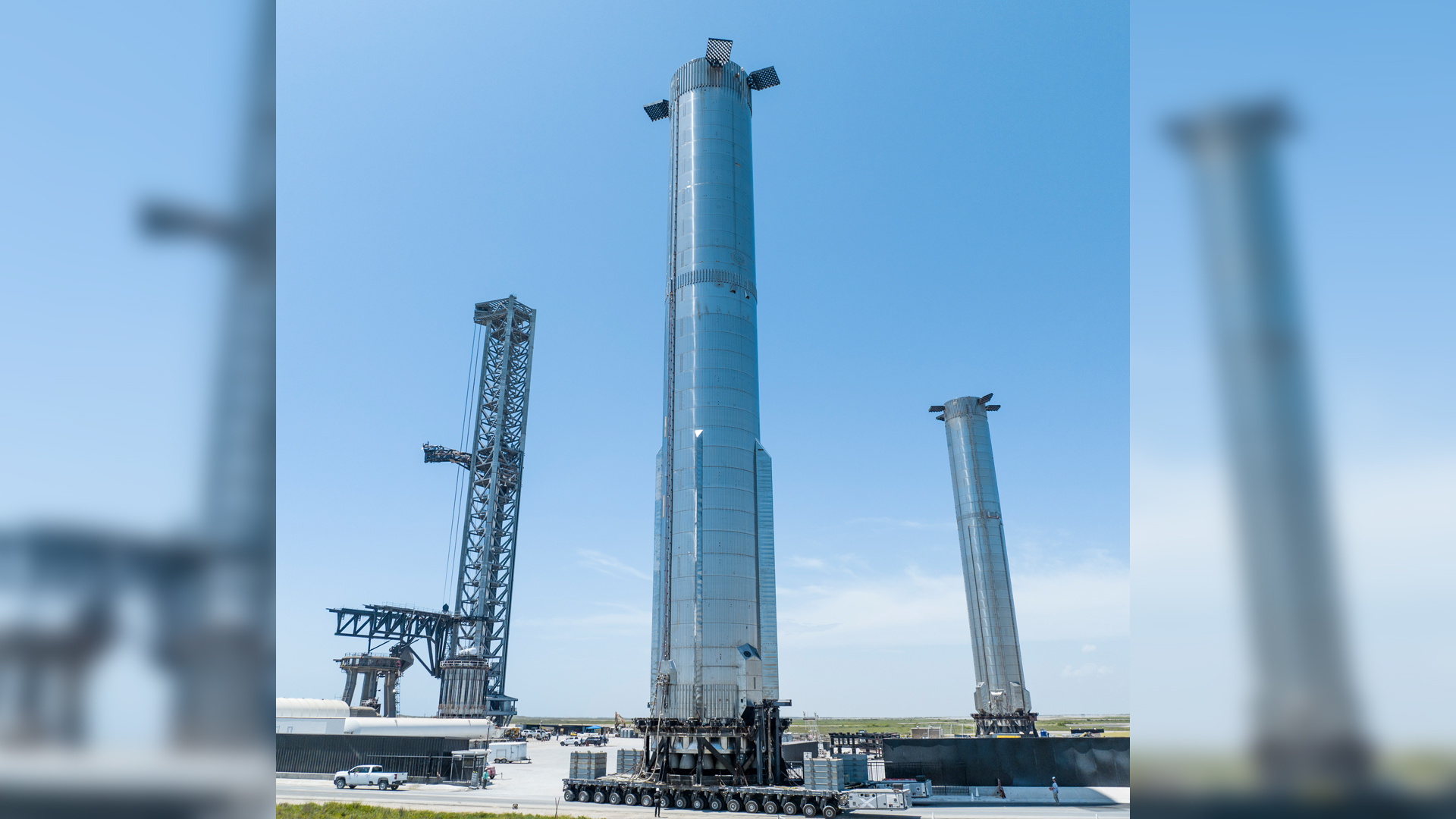
SpaceX's Starship program includes both the first-stage booster, Super Heavy, and a 165-foot-tall (50 meters) upper-stage vehicle also called Starship. Both vehicles are designed to be fully reusable. When fully stacked, Starship and Super Heavy stand 395 feet tall (120 m), making it the world's tallest rocket.
SpaceX eventually plans to use this system to take humans and cargo to the moon for NASA, then aim for Mars and other solar system destinations, but Starship only has a few high-altitude test flights under its belt so far.
Those tests all took place in a cluster between August 2020 and May 2021; ever since, SpaceX has been waiting for the Federal Aviation Administration (FAA) to complete an environmental assessment for orbital opportunities.
Breaking space news, the latest updates on rocket launches, skywatching events and more!
That process just wrapped up weeks ago with 75 required actions for SpaceX to take to continue operations at Boca Chica. (The FAA had delayed the deadline several times, saying it had to discuss the findings with other agencies and sift through thousands of public comments sent after a draft version was released in September 2021.)
But even now, FAA approval is not a guarantee. SpaceX still needs to secure a launch license, pending how well the agency deems it addressed those outstanding items in the environmental assessment.
SpaceX CEO Elon Musk recently tweeted, however, that the long-awaited orbital test flight of the system will happen next month.
"We will have a second Starship stack ready to fly in August and then monthly thereafter," Musk added in another tweet.
Starship is NASA's lander of choice for its Artemis program, which aims to put astronauts on the moon no earlier than 2025. Musk wants to send people to Mars around the same time, but he is known for setting aggressive targets both at SpaceX and his car manufacturing company, Tesla.
Follow Elizabeth Howell on Twitter @howellspace. Follow us on Twitter @Spacedotcom and on Facebook.

Elizabeth Howell (she/her), Ph.D., was a staff writer in the spaceflight channel between 2022 and 2024 specializing in Canadian space news. She was contributing writer for Space.com for 10 years from 2012 to 2024. Elizabeth's reporting includes multiple exclusives with the White House, leading world coverage about a lost-and-found space tomato on the International Space Station, witnessing five human spaceflight launches on two continents, flying parabolic, working inside a spacesuit, and participating in a simulated Mars mission. Her latest book, "Why Am I Taller?" (ECW Press, 2022) is co-written with astronaut Dave Williams.
